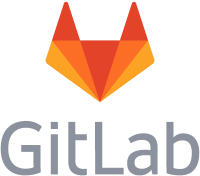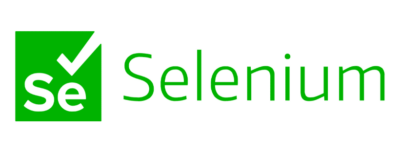by Sébastien Julliand
IBM i development has been undergoing an interesting transformation in recent years. Two of the most widely used integrated development environments (IDEs) in this space are VS Code and RDi (Rational Developer for i). But what are their strengths, and why do some developers prefer one over the other? In this article, we will explore the advantages and disadvantages of these two tools to help you choose the IDE that best suits your needs.
1. Why is VS Code becoming a popular choice for IBM i developers?
VS Code, developed by Microsoft, is a lightweight code editor known for its speed and flexibility. Unlike a traditional IDE such as RDi, VS Code is not a full-fledged platform on its own but rather a highly configurable text editor with extensions. These extensions, such as Code for IBM i, included in the IBM i Developer Pack, enable IBM i developers to use this editor for their projects.
One of VS Code’s main advantages is that it is free and has a large open-source community. This allows users to adopt it easily without additional costs. Additionally, its native integration with Git and support for multiple programming languages make it an ideal choice for younger developers, who are often already familiar with this environment.
2. What are the limitations of VS Code compared to RDi?
Although VS Code has great potential, it still has limitations, particularly in the advanced features that RDi provides. For example, RDi is a full-fledged IDE designed specifically for IBM i developers, offering powerful tools for debugging, object management, and complex component creation. It was built with deep functionality for DB2 database management and IBM i system integration.
On the other hand, VS Code often requires additional extensions to cover certain specialized aspects of development, such as component management or maintenance reporting. While these gaps are gradually being filled by continuous updates and contributions from the open-source community, they are still present for more complex development needs.
3. What specific advantages does ARCAD bring to both environments?
ARCAD Software plays a significant role in integrating VS Code with IBM i. Through ARCAD extensions for VS Code, users can connect VS Code to an IBM i server to manage administrative and development functions, such as server restarts or component creation. These extensions also enable integration with code quality control tools, such as CodeChecker and Transformer RPG, to improve code quality and developer productivity.
One of ARCAD’s key advantages is its shared metadata repository, which allows all integrated tools, whether in VS Code or RDi, to remain synchronized. This means that when a modification is made in one environment, it is automatically propagated throughout the development process, enhancing workflow continuity and efficiency.
Tip: If you are already an RDi user, integrating ARCAD extensions into VS Code can be a great way to test this IDE while maintaining the tools you are already using.
4. Can VS Code handle all development tasks, or is RDi still necessary?
Yes, for most common tasks, VS Code is now a fully functional development environment for IBM i. Whether you are creating new components, debugging, accessing the Db2 for i database, or managing applications, VS Code, with its extensions, allows these actions to be performed smoothly.
However, RDi remains more robust for IBM i-specific tasks that require deeper system integration. For example, some object management or reporting operations may still require the use of RDi or other tools such as the green screen.
5. Which IDE should you choose for IBM i development?
The choice between VS Code and RDi depends largely on your context and priorities. If you are looking for a modern, lightweight, free, and highly flexible tool, with strong Git integration and active community support, VS Code is likely the best option for you.
On the other hand, if you need a mature environment with a suite of IBM i-specific tools, particularly for administrative tasks or advanced debugging, RDi might be the preferred choice. For a hybrid solution, integrating ARCAD Elias into VS Code allows you to combine the lightness of VS Code with the powerful features of RDi.
Pro tip: For teams transitioning from RDi to VS Code, starting by installing ARCAD Elias and other ARCAD extensions could make this transition much smoother.
| Criteria | VS Code | RDi |
|---|---|---|
| Type of IDE | Lightweight code editor | Full-featured IDE |
| Cost | Free | Paid |
| Ease of use | Fast, lightweight, ideal for young developers | More comprehensive but heavier |
| Extensions & customization | Large extension community, flexible | More limited customization but well-integrated |
| Git support | Native integration | Git integration via plugin |
| Database management (DB2) | Supported via open-source extensions | Native integration |
| Debugging features | Debugging via extensions (batch mode and Service Entry Points) | Fully integrated debugging tools |
| ARCAD integration | ARCAD extensions for better integration | Fully integrated with ARCAD |
| Maturity & stability | Continuously evolving, frequent updates | Stable and mature, used for decades |
| Open-source environment | Fully open-source, community-supported | Proprietary, developed by IBM |
Conclusion
VS Code and RDi are two powerful tools, each designed for different use cases. VS Code, with its open-source extensions, is the ideal choice for modern developers. RDi remains the gold standard for those who need a complete and mature development environment. Thanks to ARCAD’s contributions, it is now possible to combine the best of both worlds, offering greater flexibility and productivity for IBM i development.

Sébastien Julliand
Tech Lead & IBM i Advocate
Sébastien Julliand, Tech Lead and IBM i Advocate at ARCAD Software, has been working for over 10 years to bridge the gap between IBM i and open systems. As an expert in multi-language development (RPGLE, Java, TypeScript), he serves as both a functional and technical reference within the R&D department. Actively involved in the development of several ARCAD products, he is the product manager for ARCAD CodeChecker and ARCAD extensions for VS Code, where he brings his DevOps expertise on a daily basis. A speaker at IBM i conferences and an open-source contributor, particularly on Code for IBM i, he was recognized as an IBM Champion in 2024 and 2025.

REQUEST A DEMO
Let’s talk about your project!
Speak with an expert


























